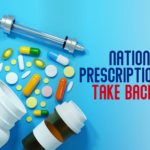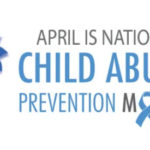By Peter Kates
Forty-one percent of adults report struggling with mental health or substance use, according to the Centers for Disease Control and Prevention (CDC), which is up from 20 percent pre-COVID. Nearly one in three adults now report having symptoms of anxiety or depression.“Behind the masks, people are hurting,” says Geoffrey Hopkins, MD, Senior Medical Director for Behavioral Health at Univera Healthcare. “As we approach another year of living with COVID-19, even more attention needs to be paid to mental health challenges as our country wrestles with finding its new normal.”

Geoffrey Hopkins, MD
The National Center for Health Statistics (NCHS), a part of the CDC, is monitoring the situation closely. In April 2020, the center partnered with the Census Bureau to conduct an ongoing Household Pulse Survey designed to complement the ability of the federal statistical system to quickly respond to, and provide relevant information about, the impact of the coronavirus pandemic in the U.S. The survey is collecting information on symptoms of anxiety and depression experienced by participants. Results have been consistent since the pandemic began, with 30.8 percent of respondents reporting symptoms of anxiety and depression in Phase 1 of the survey (April 23 -May 5, 2020), and 27.3 percent reporting symptoms in Phase 3.2 (September 29 – October 11, 2021). For comparison, a similar pre-COVID NCHS survey conducted in 2019 found just 10.8 percent of adults aged 18 and over reported symptoms of anxiety disorder or depressive disorder.
“If there’s any good news since the start of COVID, it’s that Americans have embraced telemedicine, with its increased access to behavioral health services,” says Hopkins. “Patients can see a specific behavioral health provider on an ongoing basis from the privacy of their home, where they feel comfortable and can call at their convenience.” He also points out that in areas that have a shortage of behavioral health professionals, especially those who treat children and adolescents, telemedicine offers patients access to behavioral health services that otherwise may not have been readily available to them.
Specialists providing care via telemedicine for behavioral health treatment include psychiatrists, social workers, psychologists, counselors, and nurse practitioners. Services include treatment of mental health conditions such as generalized anxiety disorders, major depressive disorders, dysthymic disorders, post-traumatic stress disorders, and adjustment disorders. Substance use disorders treated by telemedicine providers include opioid use disorder, alcohol use disorder, and tobacco use disorder.
“If you’re dealing with mental health issues or substance use, speak with your primary care doctor, or ask your health insurer to help you find a behavioral health provider,” advises Hopkins. “You can get through this, you’re not alone, and you don’t have to suffer in silence behind your mask.”
Peter Kates is Vice President of Communications at Univera Healthcare.












